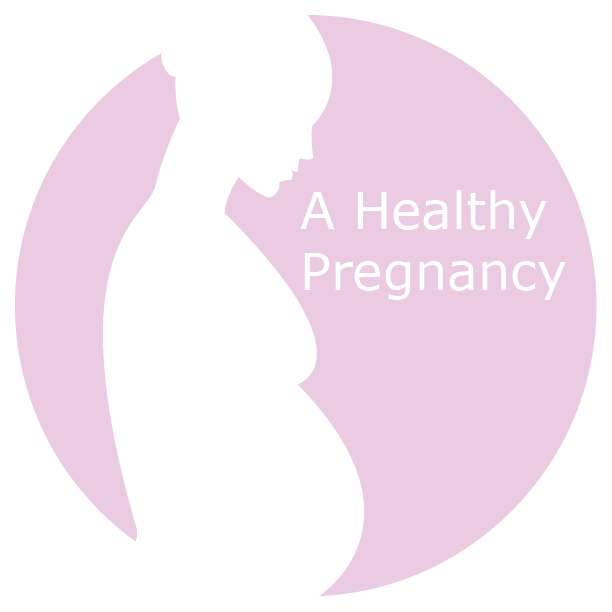My coworker Wailani was 41 when she found out she was pregnant with her third child. She was elated. She also knew that her age might make her pregnancy higher risk.
It was around her sixth month of pregnancy that she was diagnosed with gestational diabetes, or high blood sugar that starts, or is first diagnosed during pregnancy.
According to the American Diabetes Association, gestational diabetes affects about 9.2 percent of pregnancies.
Women diagnosed with gestational diabetes have an increased risk of having another pregnancy with gestational diabetes and developing Type 2 diabetes later in life. Uncontrolled gestational diabetes can lead to complications for both mom and baby.
Doctors don’t yet know what causes gestational diabetes, but it’s a growing health concern. I also developed the condition during my second pregnancy. So recently, I sat down with Wailani to talk about the diagnosis, and how she modified her lifestyle to manage it.
 How did you feel when you received the diagnosis?
How did you feel when you received the diagnosis?
Wailani: Slightly bummed, but I was willing to do what I had to do to have a healthy pregnancy and a healthy baby.
Once diagnosed, many women have to monitor their blood glucose often and follow a modified diet and exercise program to keep blood sugar closer to the normal range. Some women need insulin to help control the elevated sugar levels.
Was the diet (i.e., counting your carbohydrates, adhering to portion control, eating balanced meals) hard for you to follow?
Wailani: It took some effort to plan meals and make informed decisions when making menu selections when eating out.
What did you like about the diet plan you were given?
Wailani: I liked how things were broken down (portions and servings) so I was able to make informed decisions when eating.
You told me that during this particular pregnancy you ate really well compared to how you usually eat. How so?
Wailani: I focused on the portions as well as the quality of food. I really thought things through before I put something in my mouth.
The ADA mentions that being overweight, having high blood glucose, unhealthy cholesterol, high blood pressure, smoking, unhealthy eating and not getting enough physical activity could raise your risk of getting gestational diabetes. Other women will get this disorder without any risk factors.
Do you feel as though you had any risk factors?
Wailani: Definitely my non-petite status was a risk factor. I would say I was overweight, have high blood pressure but we do try to eat well and exercise as a family. Our portions are too big at meals and we're really trying to work on that. I was less active with this last pregnancy and I think that made me more prone for the gestational diabetes.
What did you learn from this diet?
Wailani: It takes time and effort to prepare meals, but it’s healthier and helps ensure that good selections are being made. Also, I learned how much portions and servings make an impact, especially since we live in a super-size world.
Did you also exercise?
Wailani: Daily! At least 30 minutes each day. Even if it was just strolling on the treadmill, I’d do that. The 30 minutes a day became a part of life.
Did you notice any effects from the gestational diabetes or do you believe the diet and tight blood sugar control helped to decrease complications?
Wailani: I think the diet and blood sugar control helped things. I don’t notice any effects at this point, but I am aware that I’m at higher risk for type 2 diabetes.
Do you think this has made you more thoughtful about what your children eat to prevent health problems later?
Wailani: Our family constantly struggles with this, even before the gestational diabetes.
Any advice to moms preparing for pregnancy to avoid this or for those who have just been diagnosed?
Wailani: Follow your doctor’s orders to ensure a positive outcome. Tap into resources to help you get more informed about your medical condition. Speak with others that have gone through it and learn from their experiences.
.png)
Final thoughts
Chatting with Wailani about gestational diabetes helped me think about my own experiences with the diagnosis — and my own eating and exercise habits.
When I was a little girl, my sisters and I would steal coins from my dad’s change jar and load up on Pixy Stixs and Fun Dip candy from the B-Sweet Shop in Wahiawa. When I grew up, I thought the absence of those foods in my diet meant I didn’t have a sugar addiction. I didn’t realize that my carb-loaded diet was spiking my blood sugar.
Getting gestational diabetes made me really think about what I was eating. I began to really value exercise, which did wonders for my sugar levels. I didn’t even have to work out very hard. A walk around the mall — anything — is better than no exercise.
I’ve also learned to incorporate protein and healthy fats into my diet with things like lean meat, nuts, plain coconut, plain Greek yogurt, avocados, and low-fat string cheese.
My endocrinologist has estimated that I have a 50 percent chance of developing type 2 diabetes later in life based on my weight, age, family history and because I had gestational diabetes. That’s my motivation to work out, eat better and lose weight.




